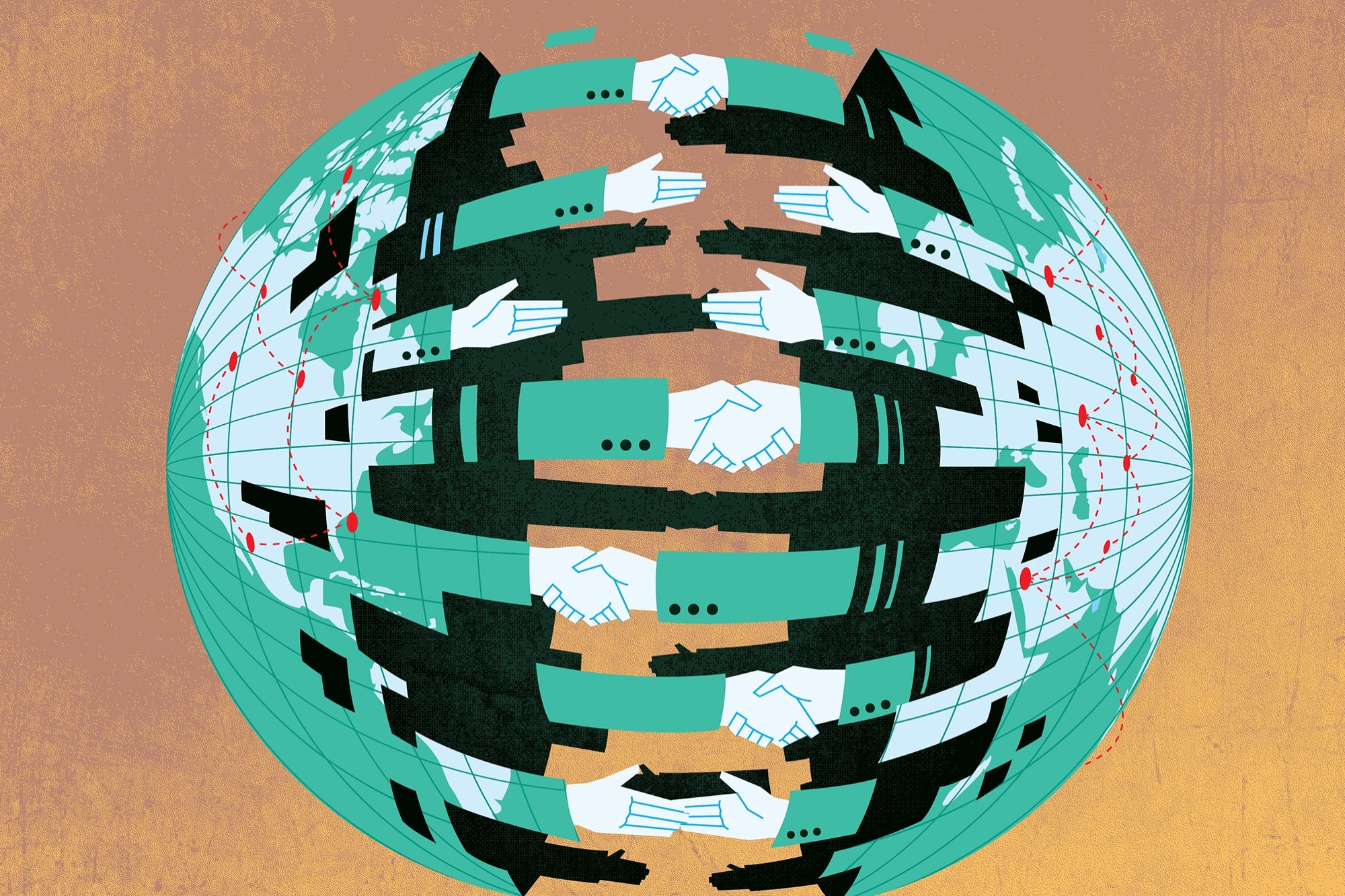
Opinions expressed by Entrepreneur contributors are their own.
As entrepreneurs, we spend the majority of our time networking within “bubbles” defined by ourselves and our businesses. From industry trade groups to demographic affinity organizations, it’s easy to think that our own entrepreneurial experiences define the norm. Couple that with days filled with budgets, calendar notifications, and that vortex of an email inbox, and it’s no wonder that we lapse into networking routines that neither challenge our perceptions nor expand our opportunities.
Last month, I participated in the Global Entrepreneurship Congress in Riyadh, Saudi Arabia, where I was instantly reminded that “my world” is far from representative of the world at large. More than 8,000 delegates from 200 nations converged in the Middle East to chart a course for entrepreneurs’ success as the global economy adjusts to the latest phase of the pandemic. Free to look beyond my own day-to-day priorities at Hello Alice, I left energized and amazed at the level of optimism, innovation, and community found among entrepreneurs from around the world.
Here are my biggest takeaways and why the future looks bright for small business owners everywhere.
1) The U.S. Has Lots to Learn from Global Models for Inclusive Entrepreneurship.
In my corner of the world, access to capital is a small business owner’s number one challenge. Our data on over 600,000 entrepreneurs at Hello Alice has consistently shown this since our launch nearly five years ago, cutting across geographies, industries, gender, and ethnicity, in times of economic boom and bust alike. Connecting American owners to the funding to launch and grow their businesses is what my company exists to do, so it was unsurprising to hear that entrepreneurs face the same financial barriers in other countries. It turns out it’s tough for someone to get a business loan regardless of where they live.
That said, the U.S. has much to learn from the financial inclusion strategies and fintech innovations implemented elsewhere. Africa’s first mobile payment service, M-Pesa, enables digital payments and microloans for businesses across the continent. I learned that leaders in Indonesia provide funding and resources to help individuals start businesses that lift them out of poverty.
Back in the U.S., we have a great opportunity to learn from these innovative approaches, reaching underserved entrepreneurs and catalyzing the American Dream for all. Our country loves pulling yourself up by your bootstraps; let’s use a combination of technology, social programs, and global learnings to make the lift a little lighter.
Related: Top Global Franchise Rankings
2) We’re Seeing Big Strides in Equity — But Not Where You’d Think
Our perception is not always reality when it comes to equity. Women and minority groups have fewer resources and less opportunity to start a business nearly everywhere you look. But we’re seeing remarkable progress in some of the unlikeliest places.
For example, Saudi Arabia has the third-highest percentage of women holding entrepreneurial roles. Saudi women’s labor force participation has also risen to a record high, while female unemployment fell by 13.9 percent in the last four years.
We can attribute some of that progress to innovative public policy. For example, Saudi women cannot be discriminated against according to their gender when it comes to private-sector salaries — meaning equal pay for women is actually the rule of law. That’s a huge difference compared to the U.S., where a persistent wage gap means that women continue to earn just 84 percent of what men take home.
This only reinforces the importance of the entrepreneurial vote in our democratic United States, where we have the power to choose the leaders we elect, and the opportunity to vocalize the needs of our small business community. It’s encouraging to see other cultures encourage women to start businesses that kickstart local economies with well-paying jobs and to recognize how public policy accelerates metrics we’ve seen stagnate for far too long in our own country. Let’s all take time to share global success stories with our policymakers, in hopes that we can accelerate action here in the United States.
3) No Matter Where You Look, Successful Entrepreneurs Share Common Traits
Sure, I noticed many differences among global entrepreneurs, but that ignores everything we have in common. My conversations in Riyadh revealed that entrepreneurs foster collaboration, no matter the culture. In every country, innovators work with universities, corporations, governments, and organizations — anyone who believes in change through innovative thinking.
If ever there was a doubt about the resilience of entrepreneurs, just look to Anna Petrova, Founder of Startup Ukraine and a leader in the Ukrainian entrepreneurship community. She told me that she and her peers are forging ahead with business as usual as much as possible — a sign of strength in defiance of the Russian invasion. Even in the most unstable of times, entrepreneurs will come together to find a way, not just for themselves, but for the benefit of their communities.
Related: Considering Global Expansion? Now Might Be Your Best Opportunity.
Entrepreneur › article
Conversations like this make it clear to me that entrepreneurs are the ones who will solve our world’s most significant problems. Worldwide, we must advocate for the funding and resources dreamers need to get their ideas off the ground. And if someone decides they want to bring that idea to the U.S., let’s make it easy for them to immigrate and find support in a new home. From what I witnessed, our nation will almost certainly be better for it.
https://www.entrepreneur.com/article/425044

